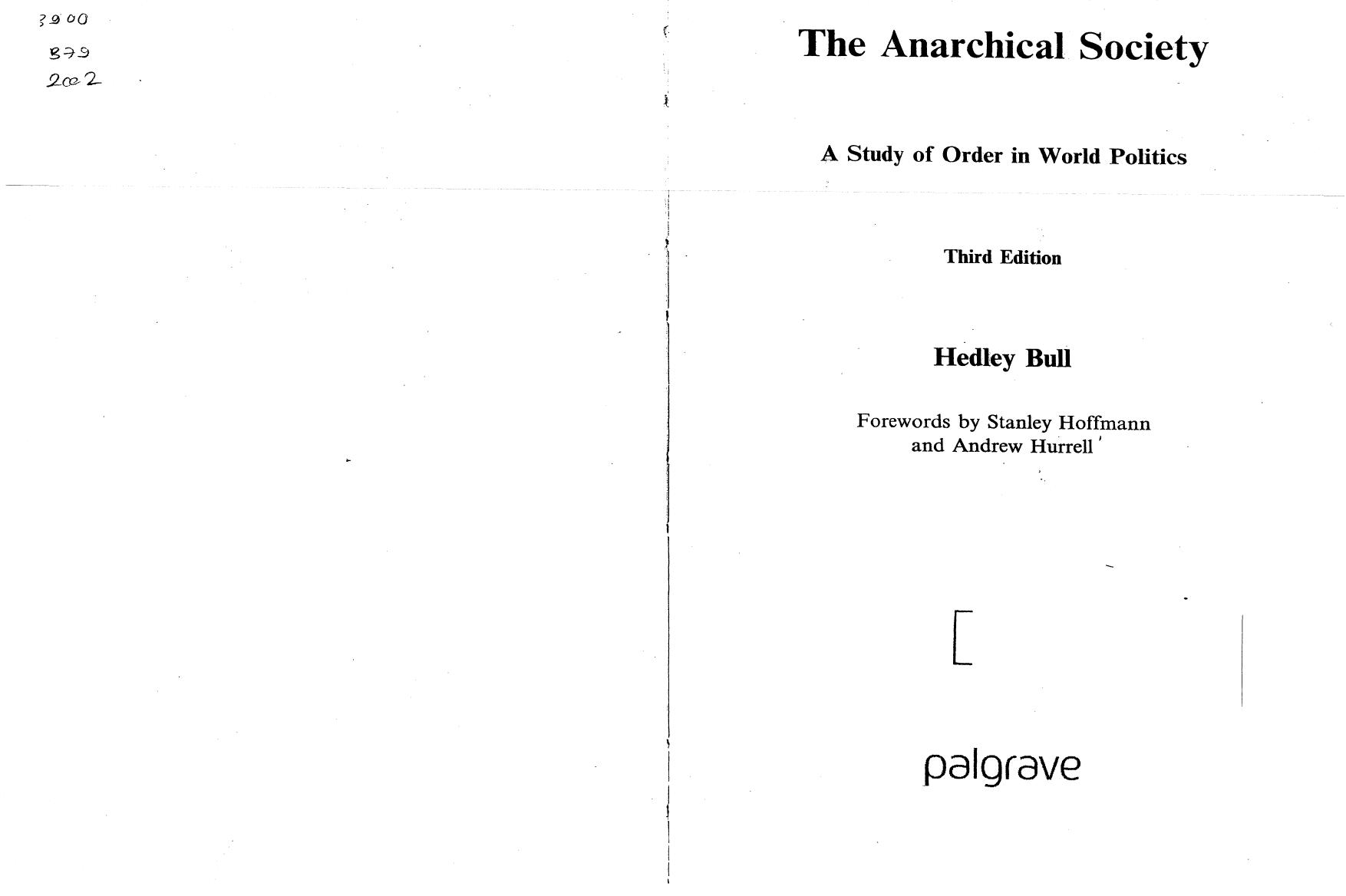The Anarchical Society by Hedley Bull

Author:Hedley Bull
Language: eng
Format: epub, pdf
Publisher: Palgrave Macmillan Ltd.
Scope of International Law
The expansion of the scope of international law to encompass economic, social, communications and environmental matters represents a strengthening of the contribution of international law to international order in the sense that it provides a means of coping with new threats to international order. The growing impact of the policies of states on each other in these fields is a source of conflict and disorder among them which international legal regulation serves to contain. If international law had not responded to these developments by expanding its scope, the threats to international order arising from the growth of interdependence in the economic, social, communications and environmental fields would be greater than they are.
But the growth of international legal regulation in these areas does not in itself imply that any strengthening has taken place in the contribution of international law to its traditionally central area of concern. The idea that progress has taken place from an ‘international law of coexistence’ to an ‘international law of co-operation’ carries with it the implication that the former has become more firmly established since the latter has been able to build on it. If we look at the contemporary state of the ‘international law of coexistence’ it is clear that this is not the case.
Let us consider only that part of the ‘international law of coexistence’ that deals with the restriction of violence. The notion that in recent times there has been a strengthening of the role of international law in restricting international violence rests principally on the doctrine of the United Nations Charter that the use or threat of force by states is illegal. A typical statement of this view has been made by Ian Brownlie:
The outstanding feature of the last half a century is the decisive change from a legal regime of indifference to the occasion for war, in which it was regarded primarily as a duel, a means of settling a private difference, to a legal regime which has placed substantial limitations on the competence of states to resort to force. After 1928 the cumulative effect of the Kellogg-Briand Pact, the Saavedra Lamas Pact, the Stimson doctrine, the state practice in the period 1928 to 1942, the war of sanction conducted against the Axis, the Nuremberg Charter, the principles of which were subsequently affirmed by the General Assembly of the United Nations, and the Charter of the United Nations, was to establish an emphatic prohibition of the use of force for selfish ends.30
Because of the introduction into positive international law in this century of a number of restrictions – of which those contained in the United Nations Charter are the latest – on the right of states to resort to force, the legal situation is undoubtedly different from what it was in the nineteenth century – although the difference is not so great if we reflect that states at that time considered themselves subject to moral restrictions on their right to resort to force, and that the interpretation of the
Download
This site does not store any files on its server. We only index and link to content provided by other sites. Please contact the content providers to delete copyright contents if any and email us, we'll remove relevant links or contents immediately.
The Secret History by Donna Tartt(16723)
The Social Justice Warrior Handbook by Lisa De Pasquale(11506)
Thirteen Reasons Why by Jay Asher(7833)
This Is How You Lose Her by Junot Diaz(5829)
Weapons of Math Destruction by Cathy O'Neil(5080)
Zero to One by Peter Thiel(4867)
The Myth of the Strong Leader by Archie Brown(4809)
Promise Me, Dad by Joe Biden(4478)
Beartown by Fredrik Backman(4465)
How Democracies Die by Steven Levitsky & Daniel Ziblatt(4448)
Stone's Rules by Roger Stone(4438)
The Fire Next Time by James Baldwin(4373)
100 Deadly Skills by Clint Emerson(4108)
A Higher Loyalty: Truth, Lies, and Leadership by James Comey(4059)
Rise and Kill First by Ronen Bergman(4045)
The David Icke Guide to the Global Conspiracy (and how to end it) by David Icke(3913)
The Farm by Tom Rob Smith(3895)
Secrecy World by Jake Bernstein(3808)
The Doomsday Machine by Daniel Ellsberg(3758)
